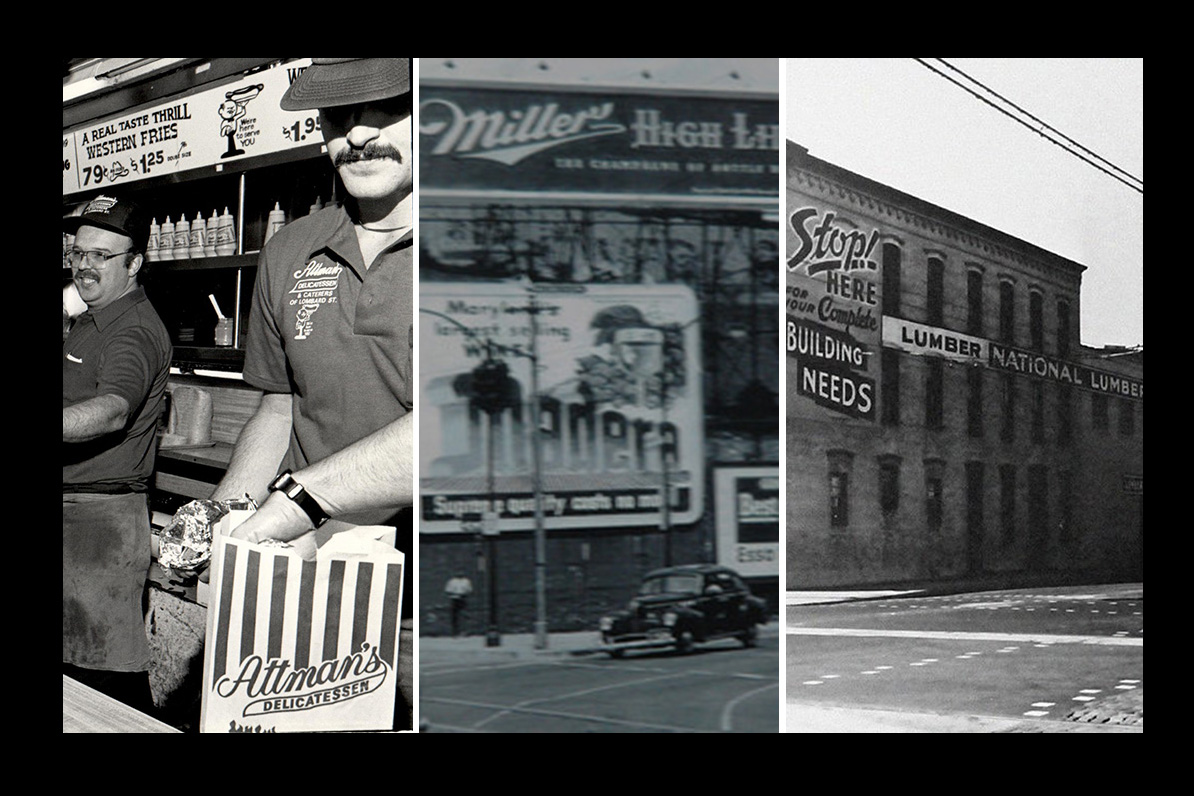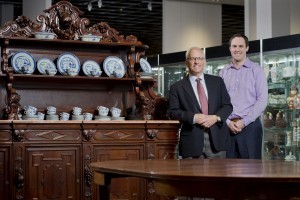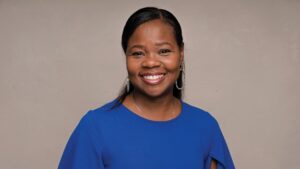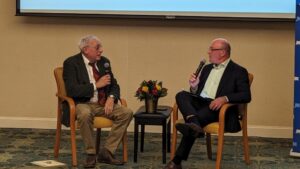Only 30 percent of family-owned businesses make it to their second generation. A scant 12 percent make it to their third.
Defying the daunting numbers, a trio of Baltimore families — the Attmans, Frumans and Footlicks — are the standard-bearers for multi-generational businesses that have not only survived but are now thriving well past their third generation.
Is their secret that blood is thicker than water? Yes, they say, family really is the glue that holds business together and makes for their success.
“Unified families have a much easier time adapting to change and typically put family and business interests ahead of their own self-interests,” says Andrew Keyt, executive director of the Loyola University Chicago Family Business Center.
Baltimore multi-generational families also tout the entrepreneurial zeal of the grandparents and great-grandparents who created a strong foundation and a legacy they aspire to maintain.
“In terms of Jewish values, respect for the older generation helps keep a business together and helps with transitions,” says Sharon Poczter, chair of the Department of Management of the Sy Syms School of Business at Yeshiva University, who studies family businesses.
Although their businesses have grown and morphed since their foundings, the Attmans, Frumans and Footlicks say that they remain loyal to their roots and hope that their children will become the next generation to put their family values to work.
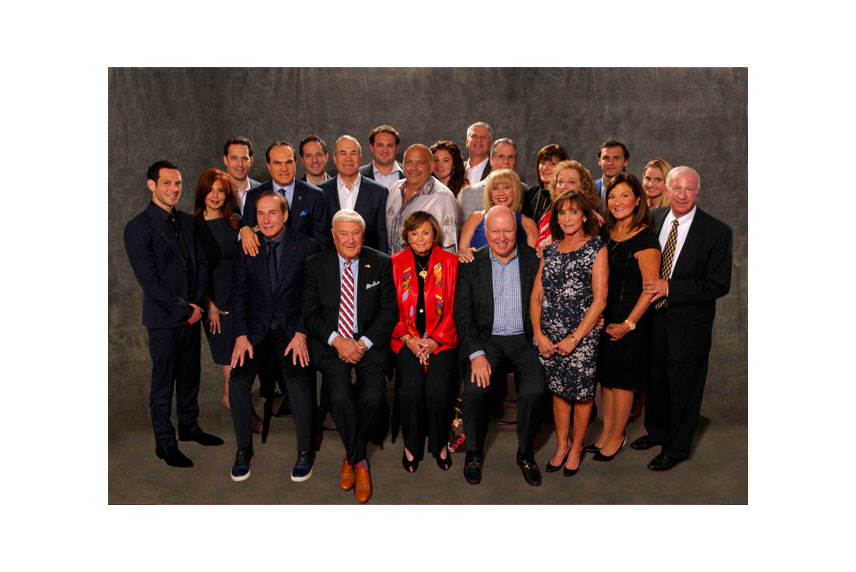
The Attman Family: “There’s an Attmansphere“
Attman is one of the most iconic names in Baltimore, one that will forever be associated with pastrami and rye bread. Although the Attman family started with its famed deli on East Baltimore’s Corned Beef Row, they have long since diversified well beyond knishes and chopped liver.
Attman family business enterprises today include Attman Properties, FutureCare and Acme Paper and Supply Co. — businesses run by several generations.
But for all of the family’s diverse business interests, Attman’s Deli on Lombard Street, and Harry Attman, its patriarch who founded the iconic deli in 1915, remain the touchstone for the many Attmans who have followed in the patriarch’s entrepreneurial footsteps.
Dr. Marc Attman, 66, began working in the deli at the age of 8. He still runs the deli in between seeing patients at the two Optical Fair businesses he owns.
“It’s 24/7,” he says. “I’m always there in some way.”
Marc says he was convinced to get involved in the deli by his daughter after the 1994 death of his brother, Stuart. Their father, Seymour, inherited it from founder Harry.
Keeping the deli going, even as he tends to his other business, is important, not only because of the family connection but also because so many other Jewish delis on Corned Beef Row have closed.
It’s about tradition as well as family business, says Marc.
“I’m the face and the soul of the place,” he says. “That’s what people like. There’s an Attmansphere there — we love being part of the community.”
Marc maintains the Attman family tradition of having pushkes (charity boxes) in their homes. Like Harry before him, he takes pride in giving those down on their luck an Attman’s deli sandwich.
“People have told me I’m a mentsch – I’m proud of that,” he says.
Although Marc’s children haven’t shown an interest in the deli, he remains upbeat. “I plan on being around a long time,” he says.
Andy Attman, 37, vice president of Acme Paper and Supply Co., jokes that his clients know that “nine times out of 10 they are going to get Attman’s for lunch.”
As a member of the third generation to run Acme, Andy credits his family’s hard work for building the company from its founding in 1946 to today being one of the nation’s largest suppliers of disposable food service packaging and industrial and custom-designed packaging.
“My generation took this to the next level,” says Andy. “I have clients who are all entrepreneurs. The fact that my grandfather [Edward Attman, one of Harry Attman’s three sons] built the company from nothing … he would be amazed at what we are selling today.”
Andy Attman says the reason Acme is so successful is directly related to its family business status. “It’s all about family and making sure everyone knows that family comes first.”
Acme was founded, in part, because Ida, Harry Attman’s wife, pointed out that, unlike food, “paper never spoils.” The business began out of a rented garage in East Baltimore. Today, four of Edward’s grandchildren work at Acme, which employs more than 200 people.
Andy says he and his extended family of first, second and even third cousins are close.
“The Attmans go to all of the simchas and non-simchas,” he says. “We always show up.”
Having the Attman name recognition is a huge plus, says Shellye Attman Gilden, 62, president of A&G Management Co., the apartment management firm founded by her father, Leonard Attman, nearly 50 years ago.
“As long as people know there is a family behind the name, customers feel like part of the family,” says Attman Gilden, whose sister Wende Attman Levitas, 54, is the company’s vice president.
Although there are other multi-generational Jewish Baltimore businesses, Marc Attman says he and family don’t try to compare themselves.
“We do it the Attman way,” he says. “We’re very proud of who we are.”
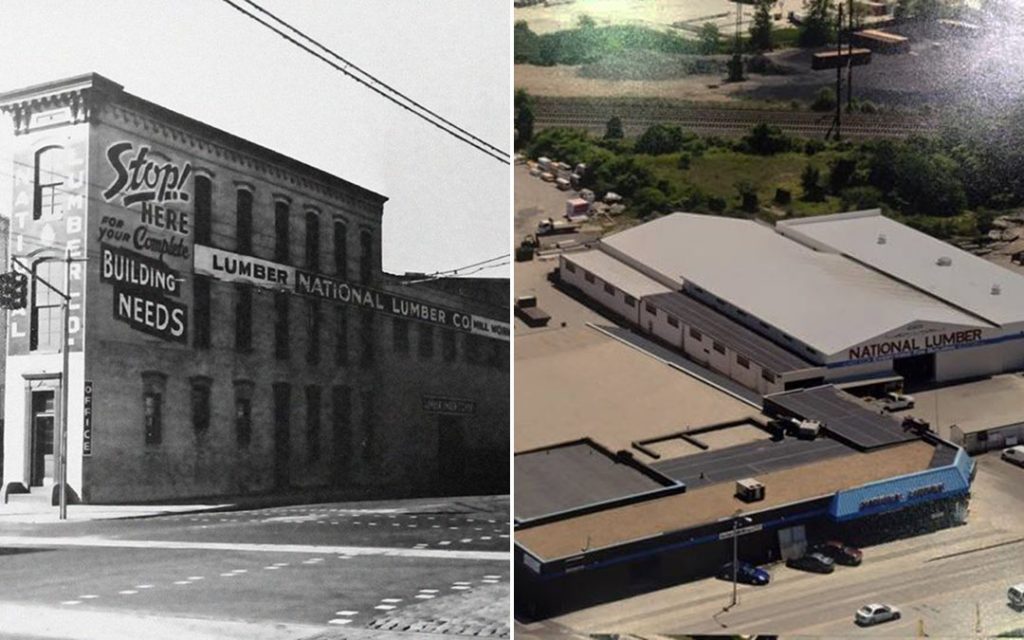
The Fruman Family: “Nothing but a Handsaw”
Kevin Fruman, vice president of National Lumber Co., lives by two basic business rules: “Always return phone calls promptly, and make sure you are dressed properly — don’t look like you just got out of bed.”
Kevin, 43, and his brother Neal, 40, the fifth generation of Frumans to run National Lumber, take pride not only in their appearances but also because National Lumber will celebrate its centennial in 2019.
The business was founded by their immigrant great-grandfather, Alexander Fruman. A carpenter by trade, Alexander sensed the growing need for custom-made window and door sashes. Setting up shop in East Baltimore, Fruman’s first employees were his sons, Isadore and Phillip.
“We’re an independent lumberyard,” says Arnold Fruman, 71, president of the company, and Kevin and Neal’s father. “There are only a handful of lumberyards left in Baltimore. Competition from the big box stores has killed business.”
To keep National Lumber thriving, the Frumans diversified the business to include building materials, high-end windows, kitchen cabinetry, drywall and hardware in addition to lumber.
Their business acumen goes a long way, but all three Frumans say that the bond holding their business together is the pride their family has in its heritage.
“Alexander Fruman came to this country with nothing but a handsaw,” says Kevin who, like Neal, started in the business in his early 20s and recalls working beside his grandfather, who died in 2009.
“It’s really great to achieve growth together,” says Neal, also the company’s vice president. “If all family members have clear roles and constantly communicate, there is no downside to being in a family business.”
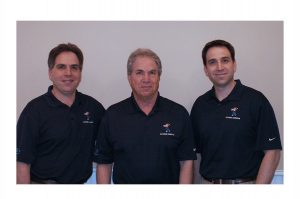
For Kevin, being with his brother and father day in and day out in the business is good for his soul. He believes that comfort and familiarity breed success.
“When you are in a business and you are near each other, it makes us all better and stronger,” he says. “There is always someone to depend on. There is complete trust.”
When it comes to decision-making, Arnold says that his sons rarely disagree with him.
“A family business works at maximum efficiency when all family members share the same expectations and work ethic,” he adds.
“We put the business first,” agrees Neal, who says that over time he and his father and brother have strived to improve their communication skills and always treat everyone in the company like family to avoid any notion of favoritism.
“I have intense pride that the business has survived for close to 100 years,” says Arnold, noting that the majority of independent lumberyards in Baltimore were Jewish-owned.
“Success in business breeds tzedakah and allows for the opportunity to give back to the community.”
To that end, Arnold is a member of the Board of Trustees of the Jewish Museum of Maryland, while Kevin is on the board of Beth El Congregation.
Even though their children are small, both Kevin and Neal say they have high hopes their children will follow in their footsteps.
“We hope that in 15 to 20 years there will be a sixth generation in the business,” says Neal.

The Footlick Family: “No Handbook!”
Like Attman’s Deli, Bond Distributing Co., a third-generation, full-service beer distributor, also has roots in East Baltimore. The name Bond was chosen not only for the company’s first location at the corner of Bond and Thames streets in Fells Point, but also because it begins with a B, which put it near the start of the Yellow Pages.
“People who are not in a family businesses think it’s over-the-rainbow kind of stuff. But everyone in the business wants to work through challenges,” says Ronnie Footlick, 75, principal and director of human resources at Bond.
Her father, Edward Borow, started the 68-year-old company with just 10 employees and a newly minted distributorship that provided Baltimore, a beer-friendly city, with Miller Beer.
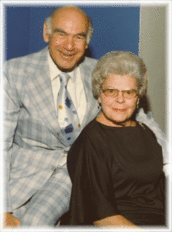
For Footlick and her daughters — Leslie Schaller, 50, principal and director of media and marketing, and Randi Settleman, 48, principal and vice president — working through the ups and downs of running one of the country’s most successful beer distribution companies means figuring out the best ways to communicate, not only among family members but also with Bond’s nearly 200 employees.
“The number of multi-generational family businesses that make it to the fourth generation are minuscule,” says Schaller. “We are constantly working on communication.”
To improve communication and decision-making, Schaller and her family established quarterly Family Leadership Group meetings attended by all the family members who work in the business on a day-to-day basis. They also hired a family business consultant to further hone their business and communication success skills.
Many of Bond’s employees are themselves multi-generational.
“We have lots of different generations of family members,” says Schaller. That includes fathers and sons, husbands and wives, and siblings. Schaller says her father wanted to create a company culture in which employees were passionate about the job at hand.
Avoiding any appearance of favoritism for family members is critical to the success of any family business, she says.
“My father went to great ends to mitigate favoritism,” says Schaller. “The last thing I want is for anyone to think my sister or I get special treatment. No one in the family gets extra pay or vacation.”
Schaller’s father encouraged his children not to go directly into the family business.
“My father said you must go out and work elsewhere,” says Schaller, who returned to Bond in 1992 at the behest of her father, who died in 2015.
The biggest obstacle for family businesses is the generational divide, says Footlick. “The older generation was more entrepreneurial,” she says. “The younger generation doesn’t always have the same vision.”
Although the parent-child dynamic can be fraught with challenges — “Children sometimes feel that parents are judging them” — the grandparent-grandchild relationship is “totally different,” says Footlick.
“There is no intergenerational handbook,” adds Footlick. “This is all trial and error.”
All of the family members agree that what’s most important is that the business continues. “Our fourth generation has 10 grandchildren,” says Schaller. “Should my children or nieces or nephews want to enter the business, I would be overjoyed.”
Jill Yesko is a Baltimore-based freelance writer.

